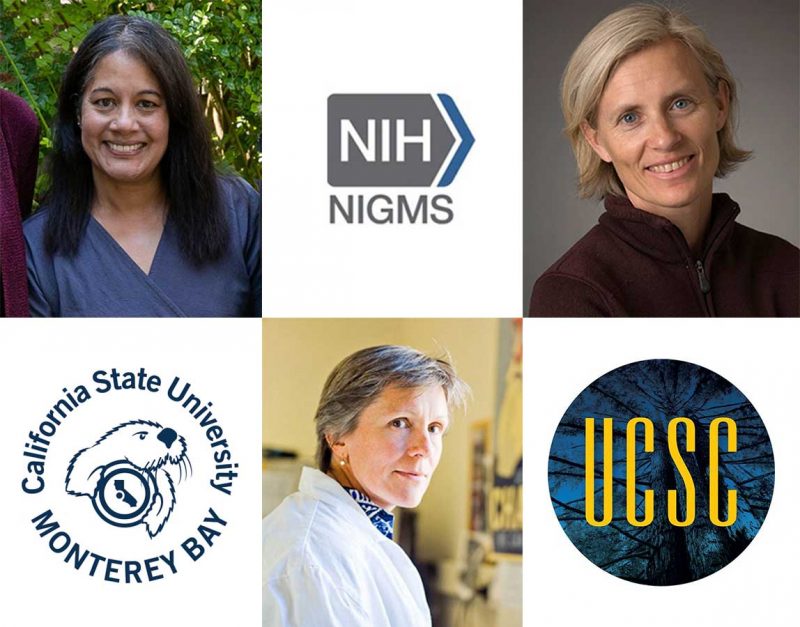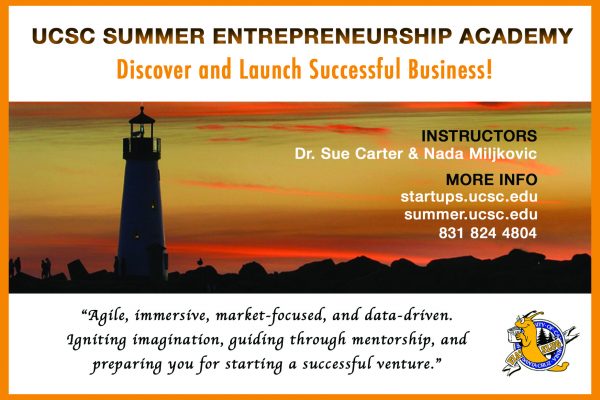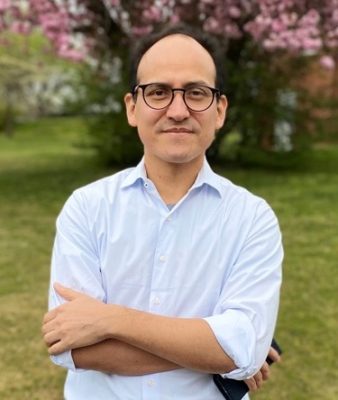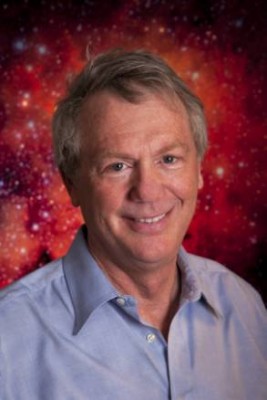Featured
UCSC partners with CSUMB for postdoctoral training and mentorship program

By Tim Stephens
UC Santa Cruz
August 13, 2020 — Santa Cruz, CA & Monterey, CA
(Image above: clockwise from top left: CSUMB Associate Professor of Genetics and Molecular Biology Aparna Sreenivasan, UCSC Professor of Molecular, Cell, and Developmental Biology Lindsay Hinck, UCSC Professor of Biomolecular Engineering Camilla Forsberg. Photo Credits: UCSC)
A $4.2 million NIH grant to UCSC’s Institute for the Biology of Stem Cells is funding an innovative program to address underrepresentation of minorities in biomedical faculty
The Institute for the Biology of Stem Cells at UC Santa Cruz has received a $4.2 million grant from the National Institutes of Health (NIH) to launch an innovative postdoctoral training and mentorship program in partnership with California State University at Monterey Bay (CSUMB).
The new program will provide support for postdoctoral researchers studying stem cell biology at UCSC, combined with the opportunity for them to develop critical teaching and mentoring skills while working with undergraduates at CSUMB. The funding comes from the Institutional Research and Academic Career Development Award (IRACDA) Program at NIH, which aims to develop a diverse pool of well-trained biomedical scientists who have the necessary knowledge and skills to pursue independent academic teaching and research careers.
“This is much more than traditional postdoctoral training, in which people often end up feeling somewhat isolated in their labs,” said Camilla Forsberg, professor of biomolecular engineering at UCSC and one of the program’s principal investigators. “The postdocs will get to train together as part of a cohort, and they will get teaching training, career development, and more structured mentoring.”
The program will provide four years of support for postdoctoral scholars. Principal investigator Aparna Sreenivasan, an associate professor of genetics and molecular biology at CSUMB, explained that, after their first year, the scholars will spend 25 percent of their time teaching at CSUMB, where they will work closely with a faculty mentor.
“This will give them a huge edge over other postdocs when they are applying for faculty positions, and they will know what it’s like to teach at a predominantly undergraduate institution like CSUMB,” she said. “We have a large number of students from underrepresented groups, and when we are recruiting faculty, we are looking for people with teaching experience who understand pedagogical methods and know how to interact with undergraduates.”
Both UCSC and CSUMB are Hispanic Serving Institutions with many students from historically under-served backgrounds. The IRACDA program takes a two-pronged approach to address the underrepresentation of minorities in science, technology, engineering, and mathematics (STEM) research, by preparing a diverse group of postdoctoral scholars to succeed in academic careers and by providing additional mentorship, role models, and opportunities for underrepresented minority students in STEM.
“We aim to build a diverse cohort of postdocs, and we’re very excited about the partnership with CSUMB and the opportunity to create a vibrant, mutually advantageous exchange between the two institutions,” said principal investigator Lindsay Hinck, professor of molecular, cell, and developmental biology at UC Santa Cruz.
UCSC and CSUMB have a long-standing relationship and ongoing collaborations in various programs. An informal program providing UCSC postdoctoral fellows with teaching mentoring at CSUMB has already shown success, with participants going on to land full-time faculty positions.
Sreenivasan said she hopes to leverage the IRACDA program to help build the pipeline for underrepresented students in STEM fields. “We want to increase the numbers of CSUMB students feeding into the graduate programs at UCSC,” she said.
The Institute for the Biology of Stem Cells, established in 2005 with funding from the California Institute for Regenerative Medicine, has built a cohesive interdisciplinary stem cell research community at UCSC. It brings together 23 laboratories led by faculty from five different departments and two divisions. Hinck and Forsberg are co-directors of the institute, which provides a strong research and administrative infrastructure for running the IRACDA training program.
“I am looking forward to working with the postdocs who will be coming in,” Forsberg said. “The program will attract people who are really interested in getting faculty positions. I think we can recruit talented scientists and train them to be successful in both research and teaching.”
###
Originally published here: https://news.ucsc.edu/2020/08/postdoc-training-grant.html
###
Tagged Baskin School of Engineering, Center for Biomolecular Science and Engineering, CSUMB, institute for Biology of Stem Cells, UC Santa Cruz








